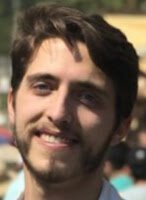An exam away from certification, Hispanic nurses rise above language barriers to reclaim careers
The women come from a variety of backgrounds. Some work in factories or grocery chains, others as school lunch ladies, making $8 to $9 an hour. Others are Hurricane Maria refugees who work for Burlington, some for U.S. Cotton, supporting families as they tilt on the poverty line.
All have one thing in common: the dream to one day be registered nurses.
 Starting on June 3, the Spanish-American Committee (“Span-Am” to residents), one of the first social service agencies for Hispanics in the state of Ohio, began offering a free 12-week course to aid aspiring nurses in passing the NCLEX (the national test for nursing licensing commonly referred to as “the boards”). Currently, 23 local nurses are registered.
Starting on June 3, the Spanish-American Committee (“Span-Am” to residents), one of the first social service agencies for Hispanics in the state of Ohio, began offering a free 12-week course to aid aspiring nurses in passing the NCLEX (the national test for nursing licensing commonly referred to as “the boards”). Currently, 23 local nurses are registered.
With RNs in the U.S. making up to double or triple as their companions in Puerto Rico and Latin America, passing the NCLEX isn’t just a positive uplift for the ego. It’s the difference between surviving and living in the United States.
According to David Santiago, a program manager at Span-Am, the agency’s very first endeavor into an instructional partnership with MetroHealth is a highly longed-for step up for prospective health care providers—many of whom struggle with English medical terms and American hospital culture. It’s so popular after its first week that Santiago has already filled 15 spots for its followup.
“A lot of our students were surgical nurses or supervisors back on the island,” says Santiago, who migrated from Puerto Rico when he was 25 to accept a job at Catholic Charity Services. “And many say, ‘This is ridiculous. I had a job, I have a degree. And because I haven’t passed this stupid test, I can’t practice here.’”
A competency-based, 256-question exam, the NCLEX usually takes roughly 5 or 6 hours, depending on one’s English proficiency and prior experience in health care. The subject range is vast, from hospital safety issues to the most effective method to administer morphine. Technical information, Santiago warns, is imperative "to understand. Because if you're not careful, you could kill somebody.”
Recent research shows that one’s country of origin may determine a nurse’s certification rate. According to the National Council of State Boards of Nursing, 83 percent of nurses with a U.S. education passed the NCLEX in January, while only 39 percent of internationally-educated nurses officially earned the license (a difference of almost 47,000 people). It must be noted that only 310 of these 65,000 certified RNs originated in Puerto Rico.
Jackie Robinson, NCLEX instructor and MetroHealth employee since 1991, says that along with the challenges the NCLEX presents, other issues present themselves long after. During her research at Cleveland State University, Robinson heard so many tales of prejudice and harassment surrounding Hispanic nurses in American hospitals that she devoted her dissertation to the specific hurdles international RNs face on a daily basis.
That's why, when she heard that Span-Am was hosting an NCLEX class, she was more than willing to teach it.
“That’s what these ladies are facing right now,” she said. “They need better jobs to feed their families. They’re just in this to better themselves.”
On a recent Wednesday in a second-floor classroom at Span-Am, Robinson led a two-hour NCLEX course, as Santiago sat in the back translating her lecture into Spanish for ESL learners. With medical expertise and frequent doses of humor, Robinson ran through a PowerPoint on a handful of topics, from “Power of Attorney” to how to prevent medication errors. During her talk, one student raised her hand, uncertain of a phase. “Symptom Management?” Robinson says. “Alright, class. How do you say that in Spanish for me?”
“Manejo de los síntomas,” one student says.
“Very good,” Robinson says. “And now I know, too.”
For the majority of the 23 students present, the language barrier barring them from reclaiming the titles they carried back in Puerto Rico, or elsewhere, is surmountable, never minding the fear associated with speaking English.
For Yvonne Torruellas, 55, who practiced and taught healthcare for years in Guayama, Puerto Rico, getting back her career is a strong notion of self-pride, especially after months of working in a factory in Cleveland. Yasmilez Del Moral, 24, who aims to land a general manager role at MetroHealth one day, agrees with Torruellas when she says that for every person that passes the NCLEX, the resounding pass reverberates throughout the community.
“None of us can give up this opportunity, especially when we’re just as qualified as American nurses,” Torruellas said. “For us, this is a way that we can demonstrate that sí podemos. Us Latinas can do just as well as the rest.”
This article is part of our On the Ground - La Villa Hispana community reporting project in partnership with Dollar Bank, Hispanic Business Center, Esperanza Inc., Greater Cleveland Partnership, Cleveland Neighborhood Progress, and Cleveland Development Advisors. Read the rest of our coverage here.



